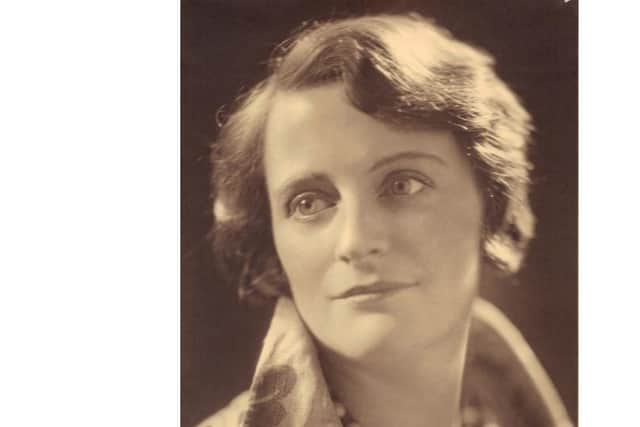Betty Joel: The Portsmouth interwar designer who became an unsung hero in her industry
and live on Freeview channel 276
But perhaps she should be more revered than she is, as the Portsmouth interwar designer played a pivotal role in her industry after the First World War.
Betty Joel was a furniture, textile and interior designer, who without any formal training, started her own business with her husband David. Her Token Works furniture workshop was initially located on Hayling Island in 1921, moving to Portsmouth in 1929 as her business grew and then to specially designed premises in London, taking her workers with her.
Advertisement
Hide AdAdvertisement
Hide AdSEE ALSO: Waterlooville man will take part in charity football tournament in memory of his grandmother


The interwar designer created furniture using the expertise of the local craftsmen with a background in yacht and boat fitting to make her distinctive furniture in the 1920s and 1930s, with the man who made each piece signing it along with Betty. She also designed her own rugs, which she had made in China. Her work in both furniture and textiles was distinctive for the use of curved lines and curvilinear shapes.
Her career sadly ended in 1938 after the breakdown of her marriage.
Now, the University of Portsmouth is researching her life to uncover more about her story.
Professor Deborah Sugg Ryan, professor of design history and theory, said: ‘There has very little research on Betty Joel and she deserves to be much better known in Portsmouth and internationally as a woman designer who was prolific and innovative.’
Advertisement
Hide AdAdvertisement
Hide AdPortsmouth City Museum and Art Gallery’s curator of art, Emily Worsdale, added: ‘As a prominent but underrepresented figure in interwar furniture design, this important research will further demonstrate the diversity of the city's cultural history and be a fantastic opportunity to learn more about a pioneering female whose innovative work forms part of Portsmouth's fascinating museum collections.’
Betty’s nephew, fine art consultant and Antiques Roadshow presenter Clive Stewart-Lockhart said: ‘I am absolutely thrilled, as I am sure Betty would have been, that the University of Portsmouth is supporting a PhD student in their study of her work. It would be wonderful if some of the stories of the craftsmen who worked with Betty can be unearthed to add colour to her extraordinary life.’
